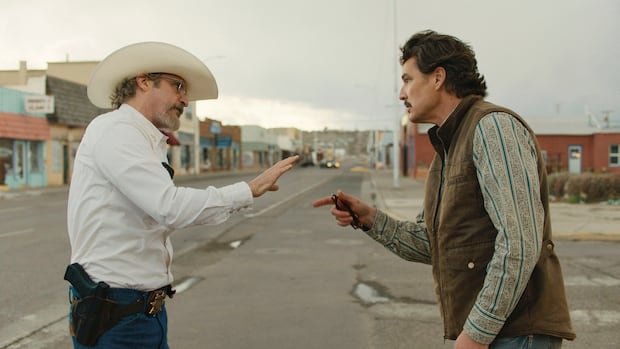Is “Eddington” classified as a western film? According to writer/director Ari Aster, it certainly is. Despite the movie’s origin from the unique mind behind “Midsommar,” “Hereditary,” and “Beau Is Afraid,” Aster has consistently labeled it as such.
When considering the film’s setting in a fictional New Mexico town, the western elements are unmistakable with its sandy landscapes, Stetsons, and bolo ties. However, delving into the storyline reveals a departure from traditional western narratives.
“Eddington” revolves around the conflict between small-town sheriff Joe Cross (played by Joaquin Phoenix) and the social media-savvy mayor, Ted Garcia (portrayed by Pedro Pascal), regarding COVID-era mask mandates, escalating into a localized conflict. The narrative unfolds to include diverse subplots involving characters like a conspiracy-minded Etsy creator (Emma Stone) influenced by a QAnon-connected con artist (Austin Butler) and intertwining performative Black Lives Matter protests with gun-rights activism.
In Aster’s view, the western genre reflects the evolving American landscape amid societal shifts and collapses, echoing historical westerns’ role in mythologizing American history. Despite the unconventional plot and themes explored in “Eddington,” the film challenges traditional western tropes, presenting a complex and modernized take on the genre.
As “Eddington” portrays a town grappling with technological advancements and societal discord, it symbolizes a new era where conflicting ideologies and uncertainties shape the characters’ conflicting beliefs and desires for change. Ultimately, the film poses profound questions about American identity and the pursuit of individual interests amidst societal turmoil.


